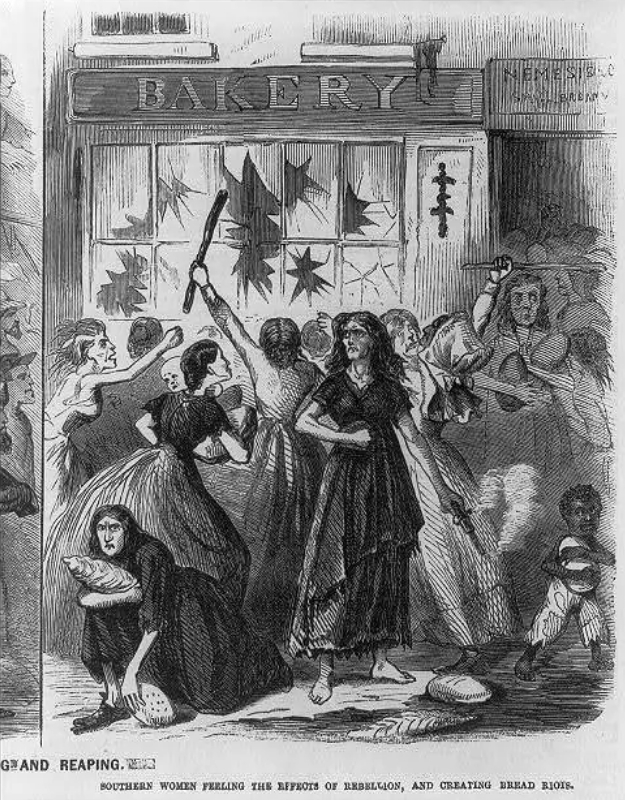The 1800s
Today in Labor History April 2, 1840: Author Emile Zola was born. Zola was most famous for his masterpiece, Germinal. He wrote Germinal between 1884-1885, not long after Anywhere But Schuylkill takes place. The story is a graphic and harsh portrayal of the life of coal miners from that era. Some people believe that the Avondale disaster, 1869, inspired Germinal. The Avondale disaster also plays a role in Anywhere But Schuylkill. Zola was prolific, writing dozens of novels. However, he was also an important actor in the liberalization of France. And he was one of the most prominent advocates for the exoneration of Alfred Dreyfus, who had been falsely accused and sent to Devil’s Island.
April 2, 1863: Bread riots occurred in Richmond, Virginia, as a result of a drought the previous year, combined with a blockade by the Union and overall civil war-related shortages. Food riots occurred throughout the South around this time, led primarily by women. During the Richmond riot, women broke into storehouses and shops, stealing food, clothing and jewelry before the militia was able to restore order.
1900-1920
Today in Labor History April 2, 1903: Mexican police fired on more than 10,000 protestors. They killed 15 and wounded many more. People had been protesting the reelection of General Bernardo Reyes as governor of Nuevo Leon, who was aligned with Mexico’s brutal dictator, Porfirio Diaz.)
April 2, 1908: Italian police shot and killed workers at a funeral for a comrade who was killed in an industrial accident.
April 2, 1919: A Canadian ban on the IWW (Industrial Workers of the World) was lifted at WWI came to an end.
1930s-1950s
Today in Labor History April 2, 1937: Workers staged a sit-down strike at Hershey Chocolate, in Hershey, Pennsylvania. Organized as the United Chocolate Workers, under the CIO, they quickly signed up 80% of Hershey’s employees. And they came close to winning a raise, until Hershey decided to break their agreement and fire all the union organizers. As a result, they launched their sit-down strike. But company president, William Murray, organized local farmers, who were losing money on milk sales because of the strike. And they created a goon squad, which violently attacked the strikers with bats and bricks. Ultimately, the National Labor Relations Board (NLRB) stepped in and forced Hershey to accept a union election. And they did, but manipulated the process to win a company union, loyal to them. In 1939, the NLRB forced a new election, because it had recently banned company unions.
The Hershey strike came a few months after the famous GM sit-down strike in Flint, Michigan. The Flint strike is generally quoted as the first use of this form of direct action. However, the Industrial Workers of the World, IWW, did a sit-down strike against General Electric, in Schenectady, NY, in 1906. This was the actual first documented sit-down of the 20th century.
Today in Labor History April 2, 1958: Herb Caen, journalist for the San Francisco Chronicle, coined the term Beatnik. The term was an amalgamation of Beat Generation and Sputnik.
1970s-1980s
April 2, 1972: Charlie Chaplin returned to the U.S. for the first time since being labeled a communist.
April 2, 1982: Thousands of Argentine troops seized the Falkland Islands from the UK.




Pingback: Today in Labor History December 22 - Michael Dunn